Media Kit
Freight Farms | Est. 2012 | Boston, MA
Freight Farms’ mission is to empower anyone to grow food anywhere through our indoor farming technology and support.
Founded in 2012, Freight Farms debuted the first vertical hydroponic farm built inside an intermodal shipping container with the mission of democratizing and decentralizing the local production of fresh, healthy food. Since then, Freight Farms has expanded its product offering and now has the largest network of connected farms in the world, with global customers ranging from small business farmers to the corporate, hospitality, retail, education, and nonprofit sectors. AgTech Breakthrough named Freight Farms the 2022 "IoT Monitoring Solution of the Year" for its farmhand® IoT automation software.
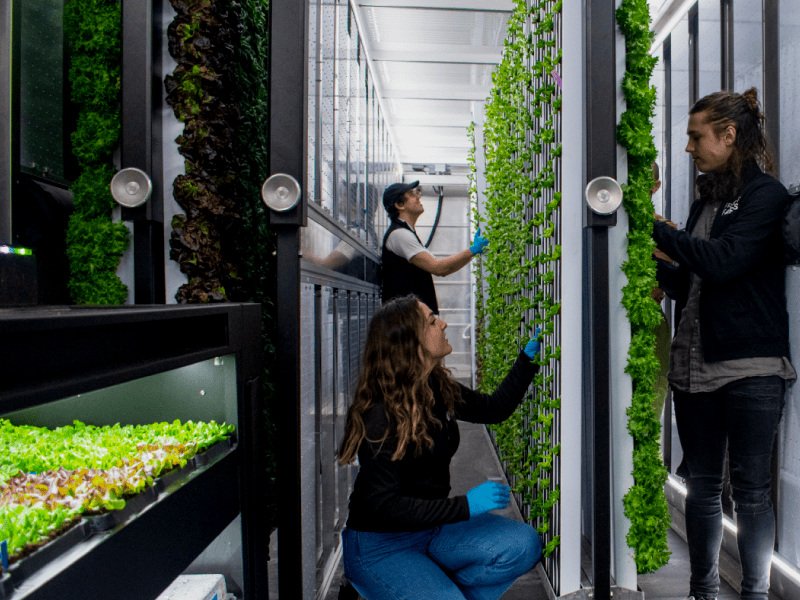
Greenery™
The ultimate shipping container farm. A commercial-scale, hydroponic farm that makes it possible to grow food 365 days a year in any climate.
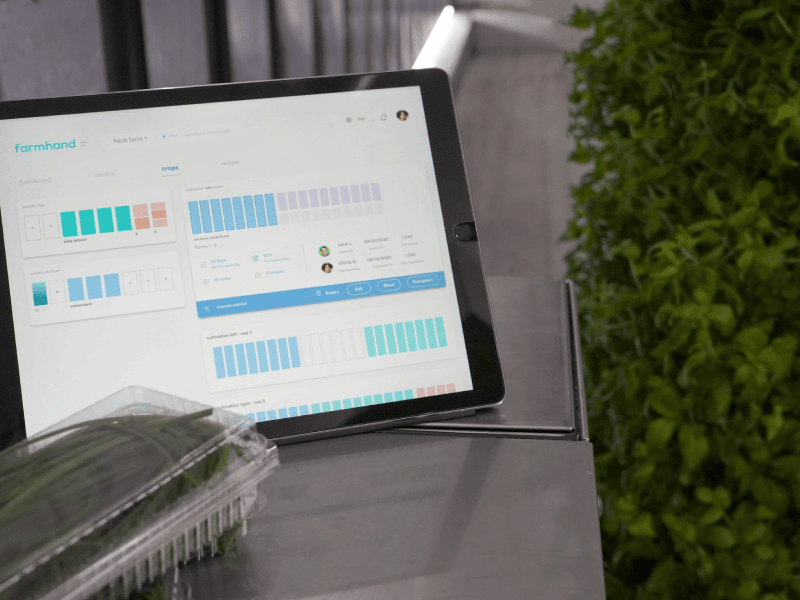
Freight Farms in the News
Local Produce on a Global Scale
We have Freight Farmers around the world: snowy Canadian wildernesses, Middle Eastern deserts, concrete urban jungles, and everywhere in between. In every corner of the globe, our container farms present a reliable source of high-quality and sustainable produce, 365 days a year.
800+ Farms
2,100+ Farmers
50 U.S. States & 3 Territories
42 Countries
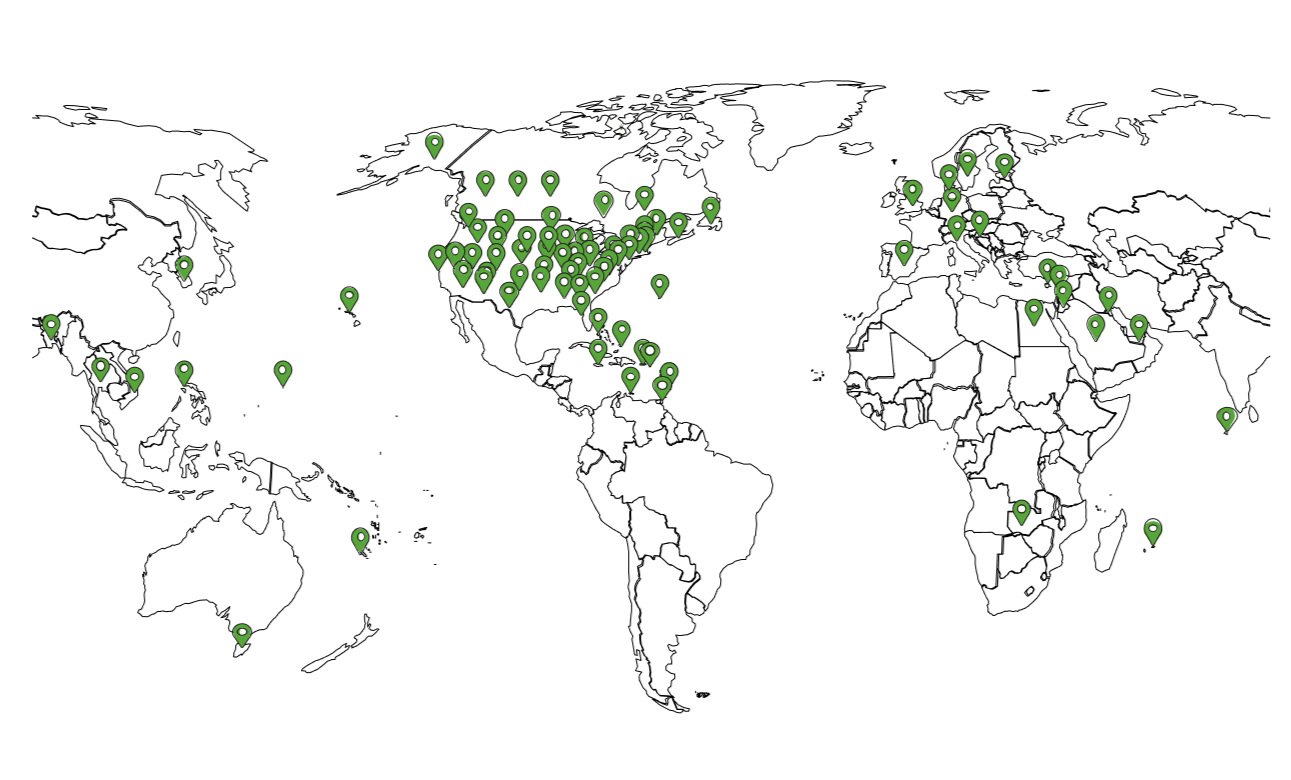
Our Freight Farmers
Our customers represent a wide variety of industries and backgrounds, including entrepreneurial small business farmers, restaurants, municipalities, schools and universities, and nonprofits. While our Freight Farmers have different backgrounds, they share a common passion for serving their communities fresh and local food.

Small Business Farmers
“The ability for us to use the Greenery to create an environment that is conducive for growing food in all seasons, especially in for a place like Kodiak [Alaska], is huge. Now, while we can’t feed everyone on the island, we can certainly help provide many, many families with [food] access.”
— Siene Allen, BrightBox Farms

Educators
“[The farm] lends to a great experience for our overall student body by bringing in some of the freshest produce possible to our dining hall every single day. When they taste it, it’s amazing.”
— Glenn Loughridge, Auburn University Director of Campus Dining & Concessions

Nonprofits
“I think the possibilities of what this farm process and programming can do for different types of communities and nonprofits is invaluable. If y’all can do it, jump in and do it, because it’s been life changing for so many people.”
— Karen Arredondo, San Antonio Clubhouse Staff

Hospitality
“The quality is bar-none, better than anything you can buy in the store ... We’re able to hold this living product much longer, provide much more crispness, full flavor.”
— Eric Rivera, Executive Chef at Vintage Year
Read the Freight Farms Blog
Wondering how much it costs to ship a container farm? Learn what factors influence delivery and crane pricing - and how to avoid unexpected charges.
Global supply chains are unpredictable, but local food production with Freight Farms’ Greenery™ container farm helps businesses, schools, and hospitals take control—growing what they want, when they want, where they want.
Grants can help fund your Freight Farm! Learn where to find grants, how to write a winning application, and what to expect in the process.
Grants provide a path to funding a Freight Farm for schools and community programs, offering fresh produce, hands-on education, and sustainability benefits. Explore funding options and how to apply today!
Grants can help fund your Freight Farm and make your vision a reality. This guide covers how to find the best funding opportunities, build a compelling application, and stay grant-ready year-round. Explore our expert tips and resources today!
Freight Farms tackles pressing agricultural challenges like PFAS contamination, soil scarcity, and climate volatility. Learn how our hydroponic systems provide clean, sustainable solutions for resilient food systems.
Discover why 2025 is the ideal time to start a hydroponic farming business. From food safety and local sourcing to sustainability and advanced technology, this guide covers the key trends and opportunities shaping the future of agriculture.
Hydroponic container farms are transforming classrooms into dynamic environments for social emotional learning (SEL). Learn how these innovative tools cultivate essential life skills while growing fresh produce.
Discover how Freight Farms’ Greenery™ provides a sustainable solution for clean, healthy crops while reducing the harmful impacts of traditional pesticide use.
Discover how the Greenery™ by Freight Farms is revolutionizing vertical farming. Learn how this innovative solution maximizes space, conserves resources, and enables sustainable, year-round crop production.
Discover how Controlled Environment Agriculture (CEA) is transforming farming with year-round crop production, optimized growing conditions, and sustainable practices. Learn how Freight Farms' innovative solutions make CEA accessible for growers everywhere.
Discover the best packaging options for hydroponic produce. From clamshells to eco-friendly boxes, find solutions to keep your crops fresh, protected, and market-ready.
Discover how container farms are revolutionizing STEM education by providing hands-on learning in botany, physics, chemistry, and more. Prepare students for the future with innovative, sustainable farming systems.
Discover how following food safety protocols in vertical farming can boost customer trust, protect your produce, and help your business thrive. Learn key practices that make your Freight Farm a reliable source of fresh, safe, and market-ready crops.
Hydroponic farming is a revolutionary way to grow plants without soil, using nutrient-rich water systems for faster growth and higher yields. Discover the key benefits, popular hydroponic systems, and real-world applications from nonprofits to healthcare, zoos, and more, all driving sustainable food solutions. Learn how you can get started with Freight Farms' customizable hydroponic solutions today."
Discover how to maximize your Freight Farm’s success by connecting with local resources, building community partnerships, recruiting top talent, and securing funding. Learn actionable steps to expand your farm's impact today!
Learn expert strategies to market your Freight Farm, build a strong online presence, engage with your community, and grow your business with sustainable local produce
On February 13th, 2020 we recorded the first of our two-part webinar series all about the Freight Farms Greenery. Part one focused on the technological systems that make the Greenery a growing powerhouse, capable of growing at a commercial scale 365 days a year. Get the whole story in our comprehensive webinar recap!
Discover 16 compelling reasons to start container farming today! From becoming your own boss and contributing to your community, to growing fresh, local produce year-round, container farming offers personal, financial, and environmental benefits.
Urban agriculture is revolutionizing food production in cities, transforming unused spaces like rooftops and vacant lots into thriving farms. Discover how urban farming enhances food security, sustainability, and economic growth, while reducing environmental impact.
Hospital-based farming is an innovative approach that integrates agricultural practices within healthcare settings to improve patient outcomes. Hospitals can enhance patient recovery, reduce food insecurity, and promote overall well-being by providing fresh, nutritious food directly from on-site farms.
Learn about 6 important things to consider when packaging your crops. We've compiled some resources to help you determine how to package hydroponic crops and what kind of packaging best suits the needs of you and your customers. We cover value propositions, branding, vegetable preservation, customer segments, and more.
Freight Farms provides a straightforward, sustainable solution for growing produce. This guide offers a comprehensive look at the daily, weekly, and monthly tasks required to maintain a Freight Farm, with detailed steps to give prospective buyers a clear understanding of farm management.
Co2 plays a crucial role in plant growth by aiding photosynthesis, turning carbon dioxide into energy. By supplementing Co2, plants grow larger, retain more moisture, and become more efficient with water use. Learn when to use Co2 and how it can enhance your farm’s output.
As vertical farming grows, so do the possibilities for crops you can cultivate in your farm. From leafy greens to herbs and even experimental crops, Freight Farms offers a vast range of options. However, with so many choices, it’s essential to start with a solid crop plan.
Schools across the country are finding innovative ways to make their Freight Farms more functional and educational for students. By customizing the interior and exterior, schools can turn these farms into engaging spaces for hands-on learning, science projects, and sustainability initiatives.
Discover essential cleaning tips for your Freight Farm to boost plant health and maximize efficiency. Learn how daily maintenance routines can prevent pests, bacteria, and algae, keeping your vertical farm productive and thriving.
Small business farmers constantly seek innovative methods to maximize productivity, sustainability, and profitability. This article explores their unique needs, compares traditional farming with container farming, and provides an in-depth evaluation of how Freight Farms can meet them.
Your grocer only sells a tiny fraction of the thousands of varieties of edible greens that exist in nature. At Freight Farms, we’re able to grow delicious and unique plants that you likely haven’t seen at the store.

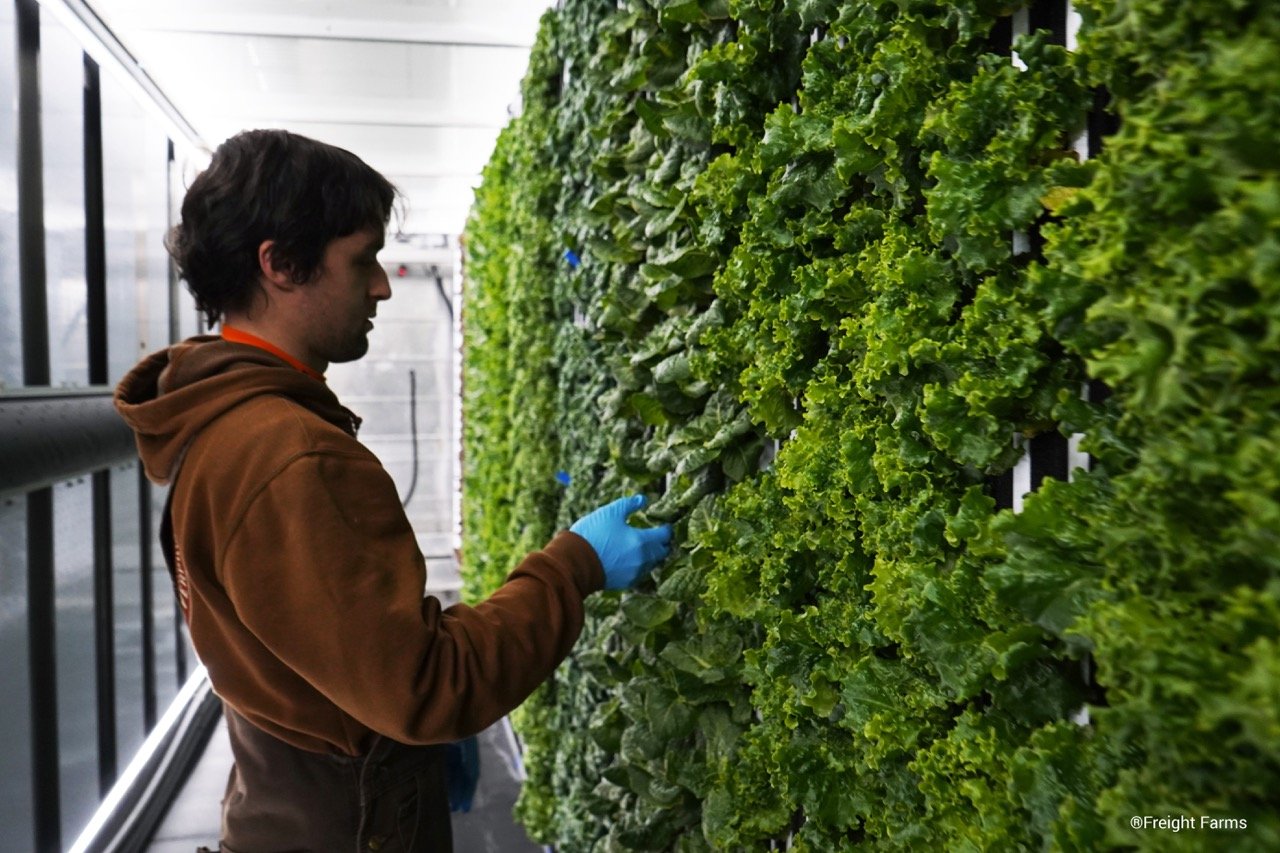
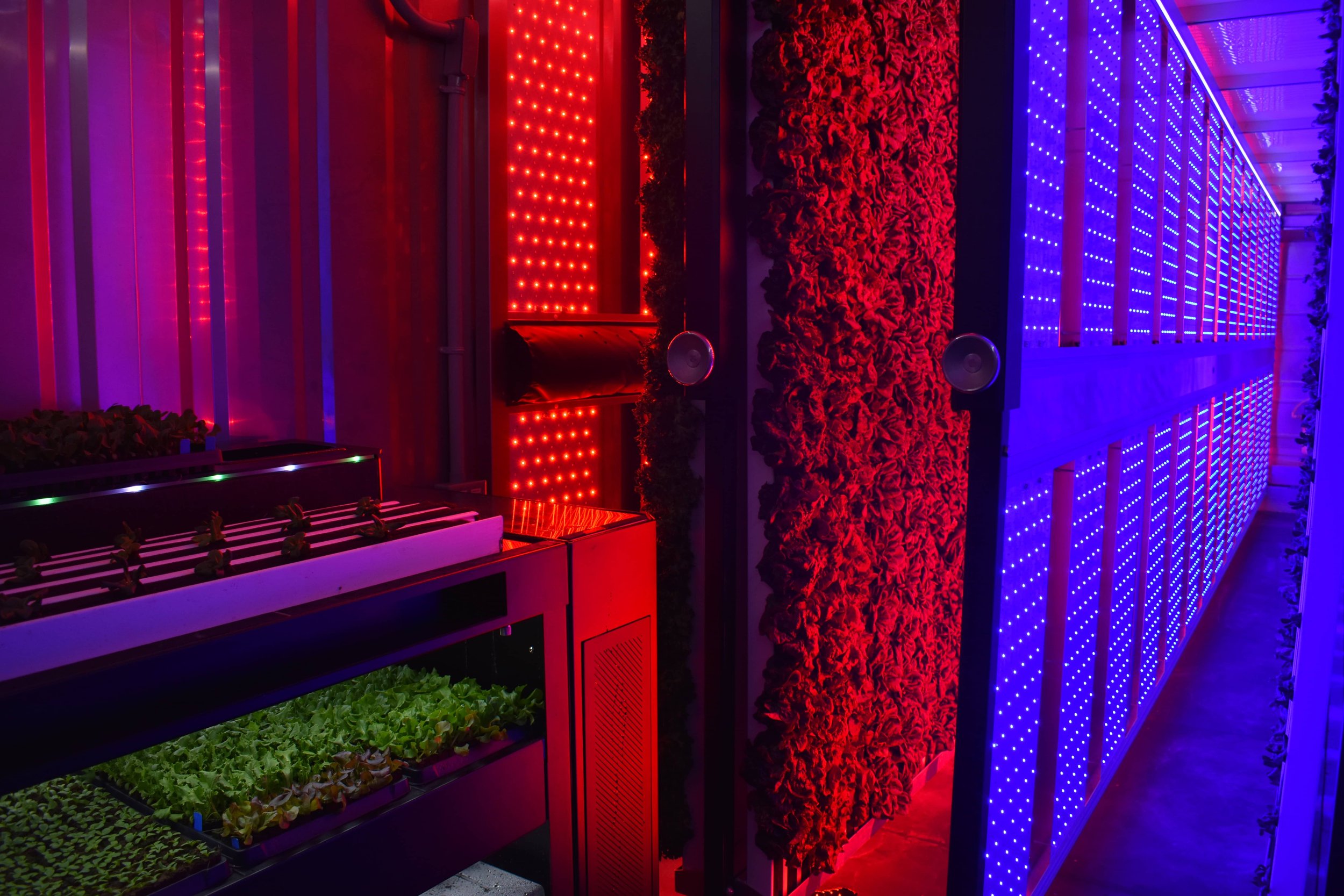
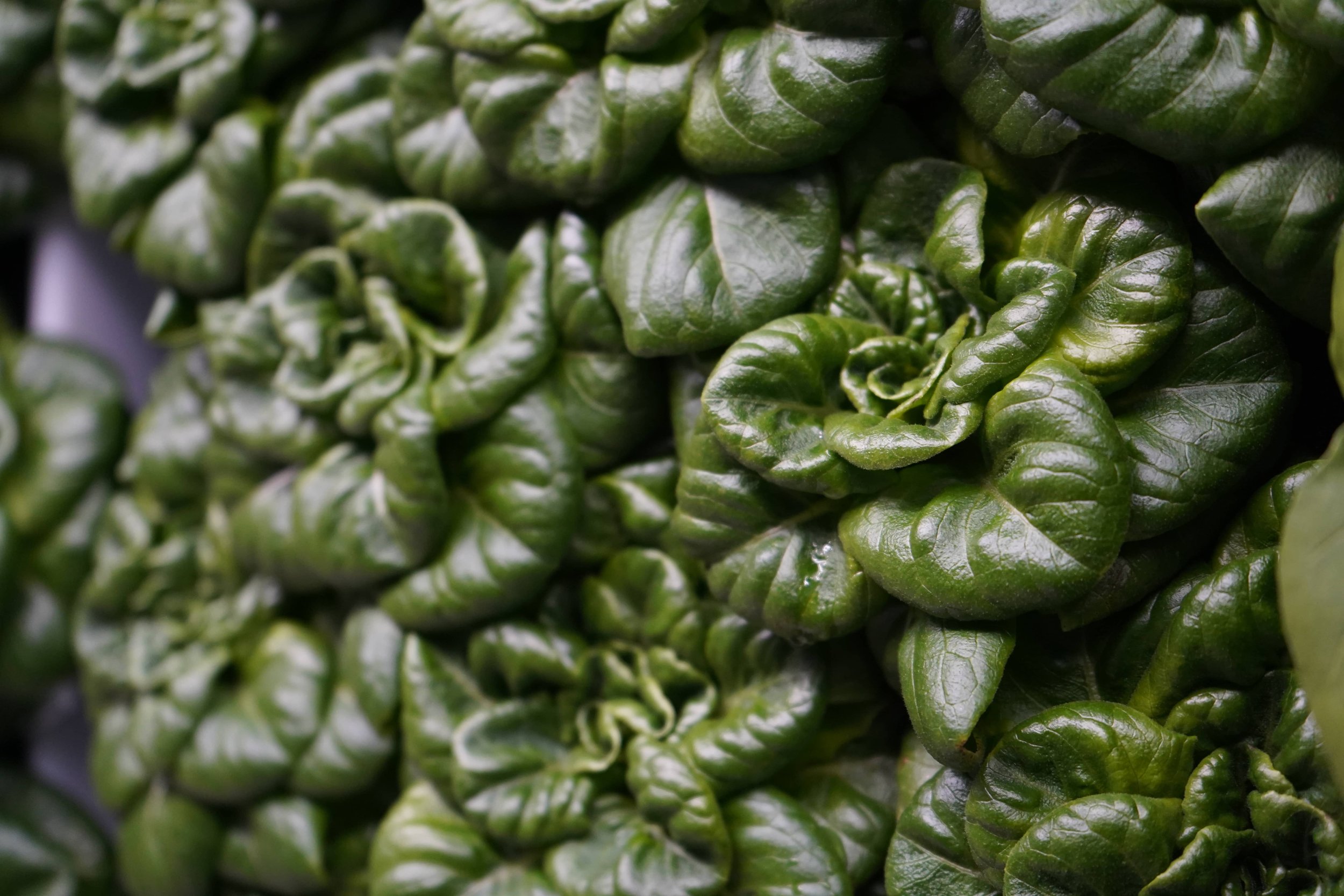
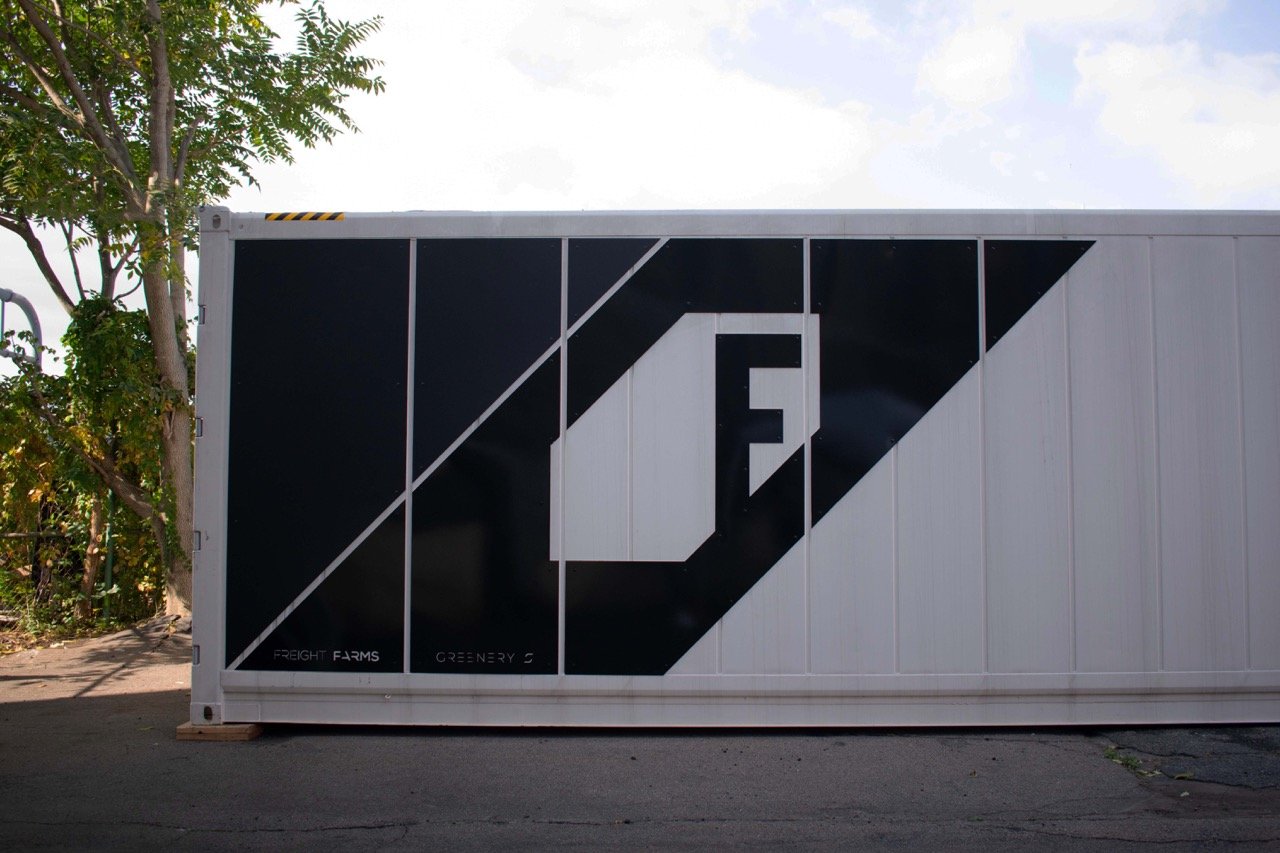
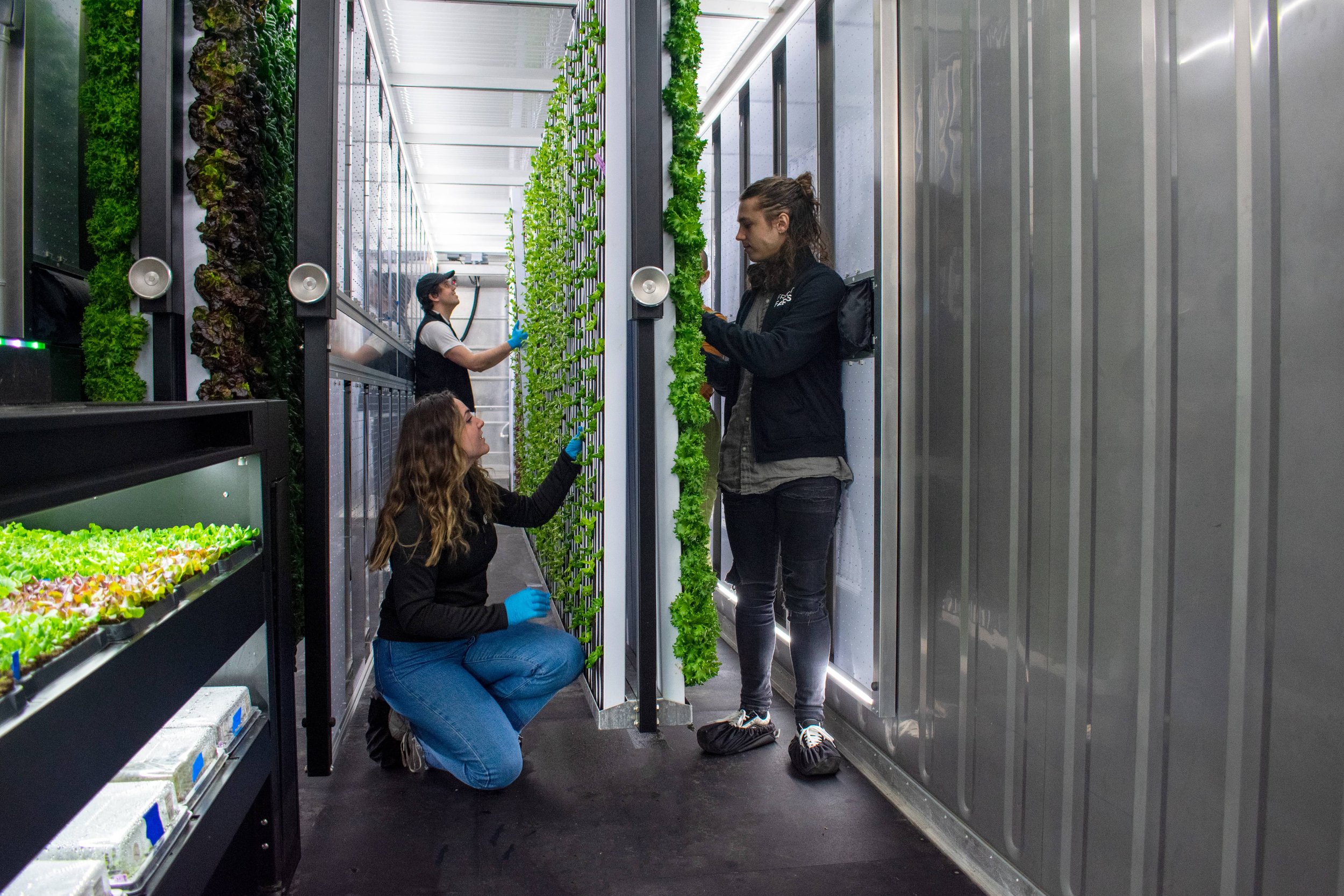
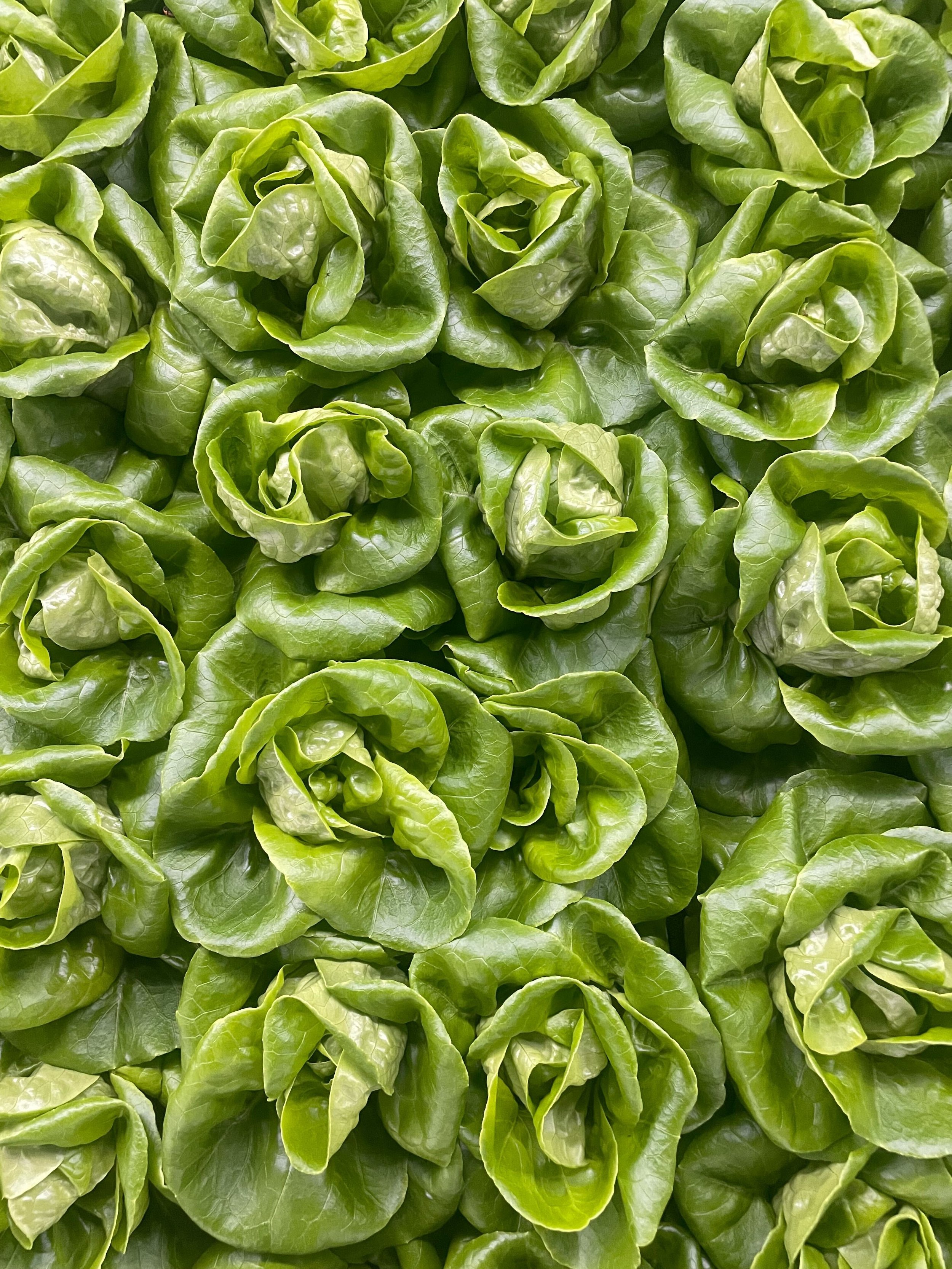
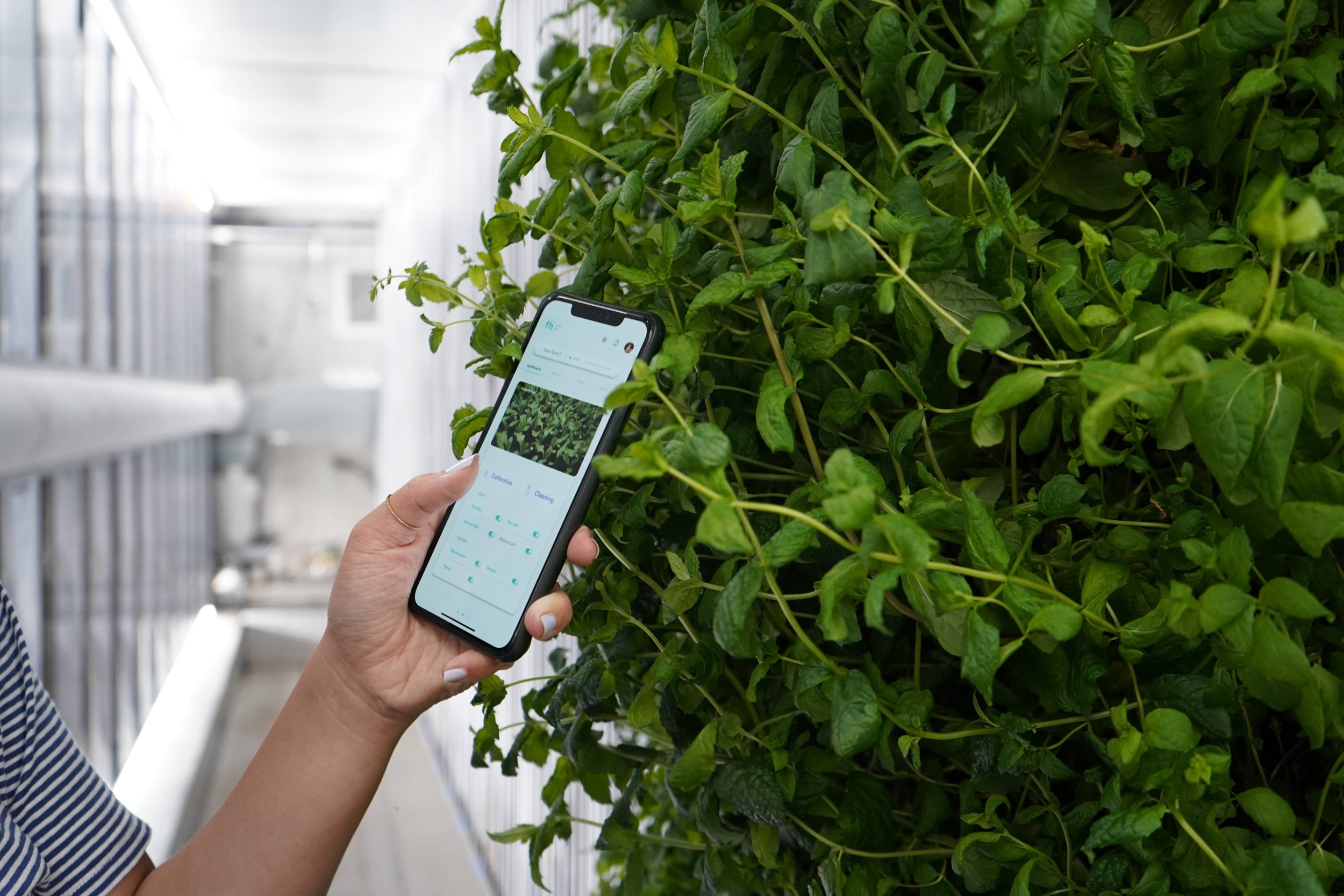
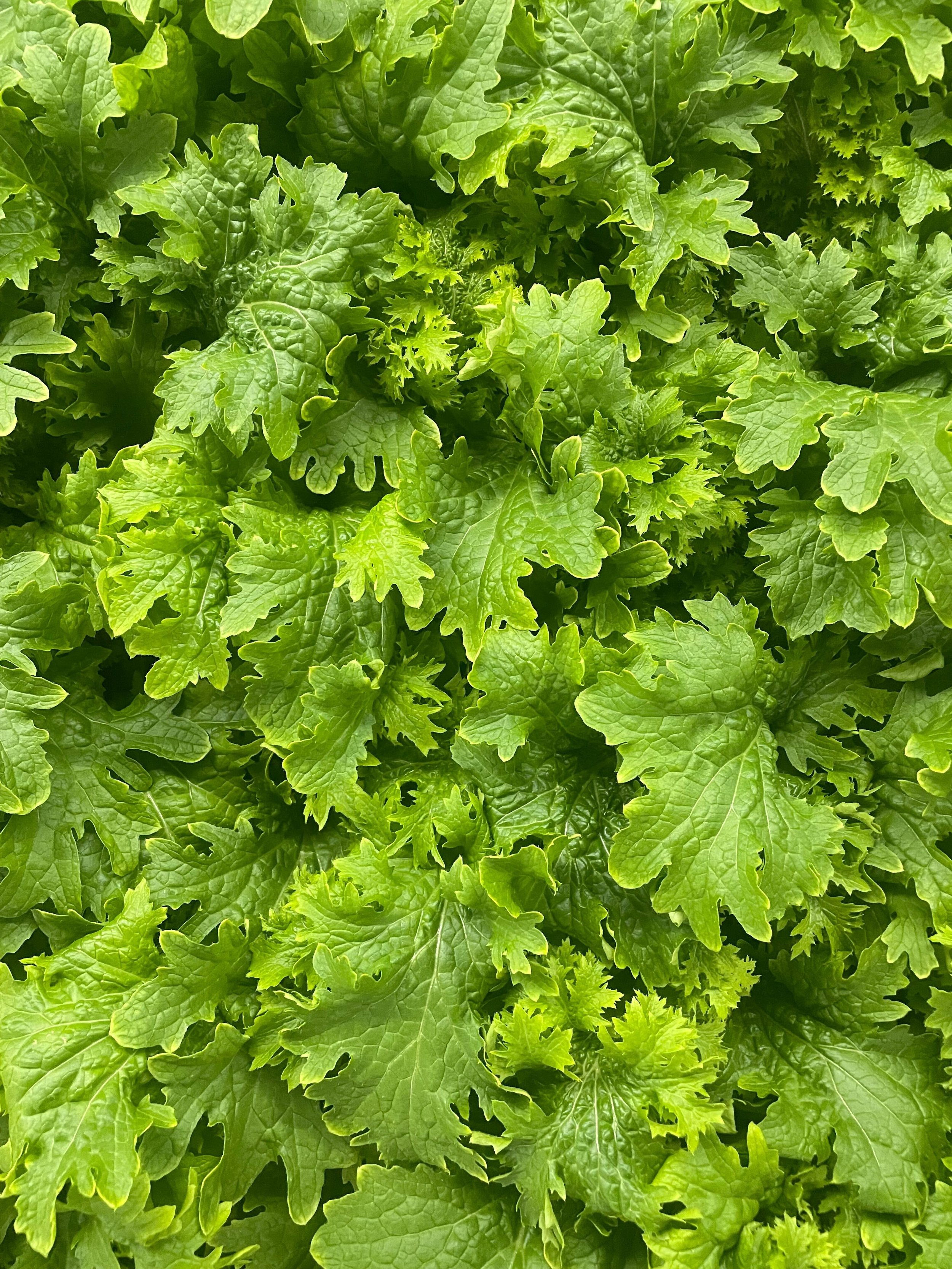

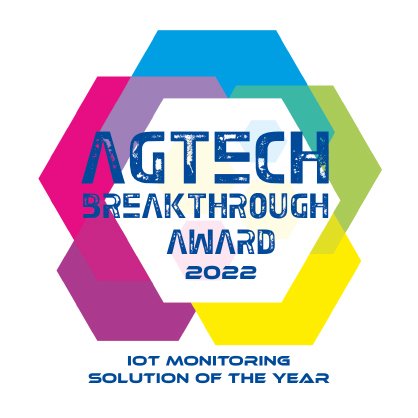
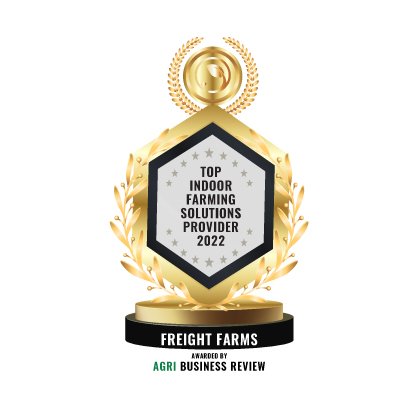
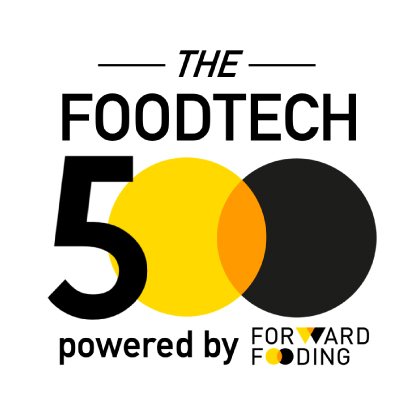








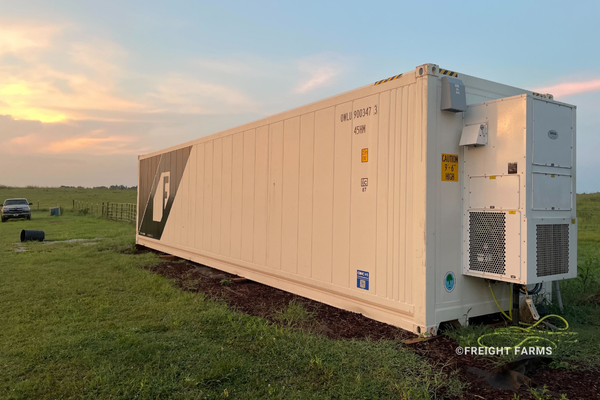
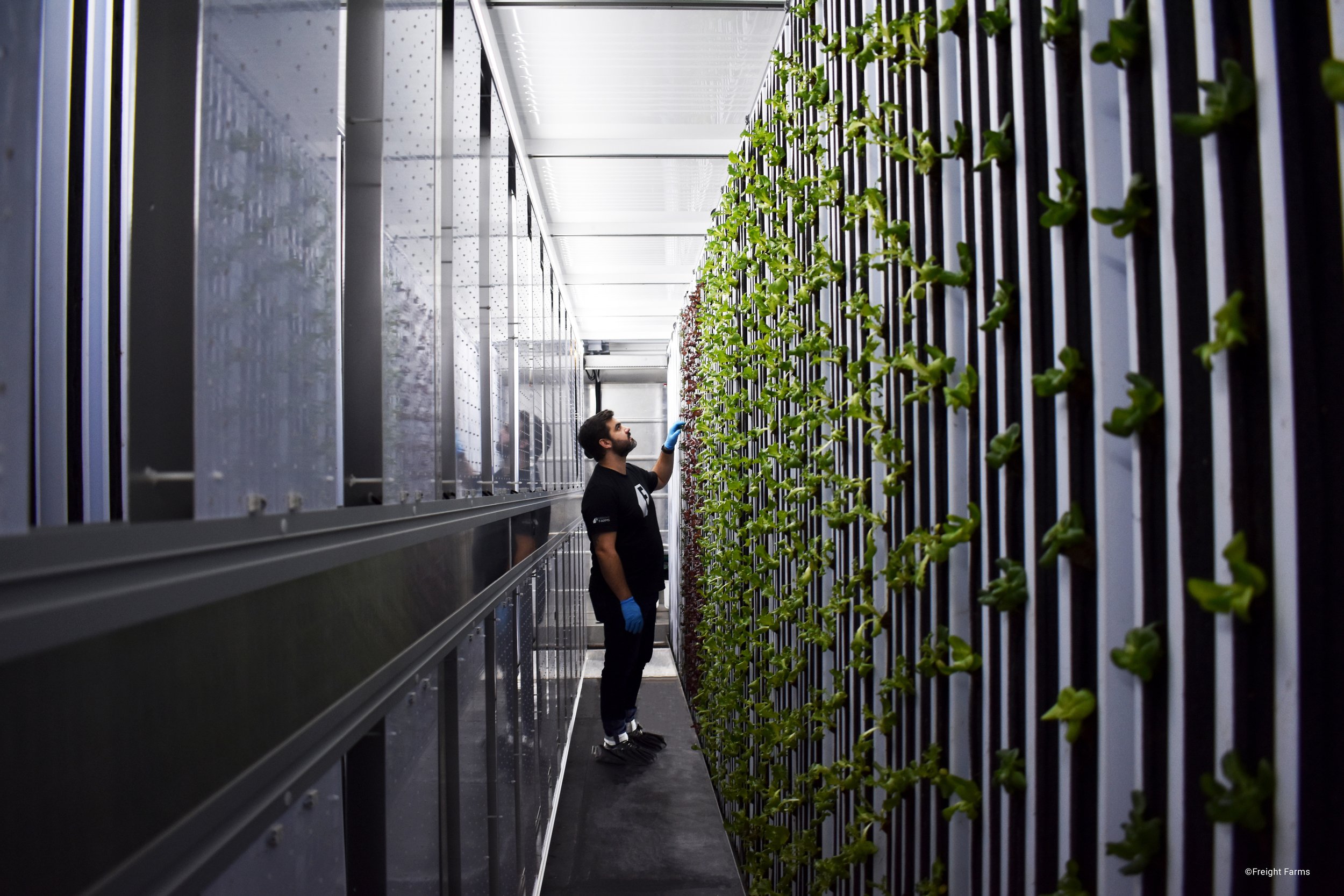










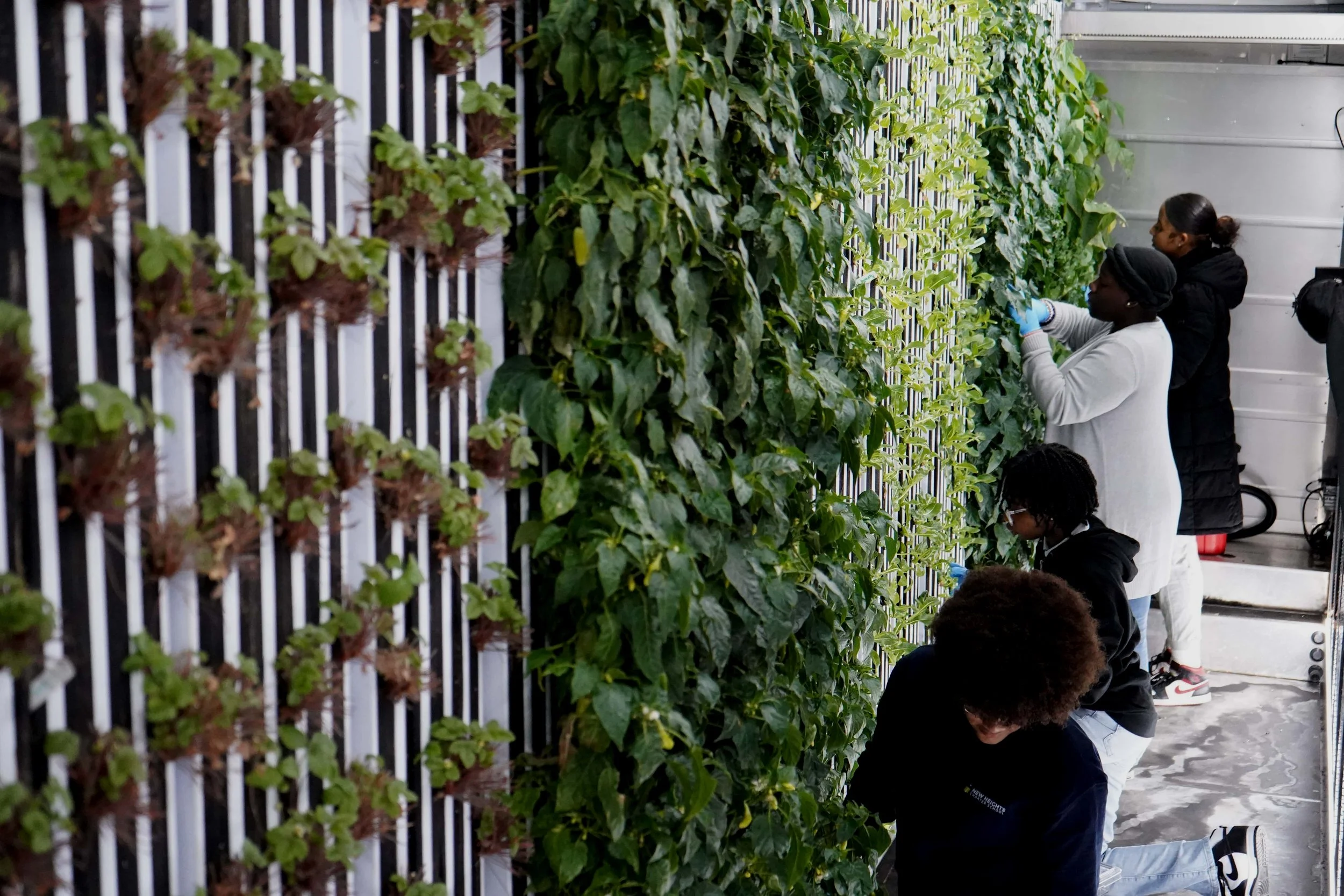



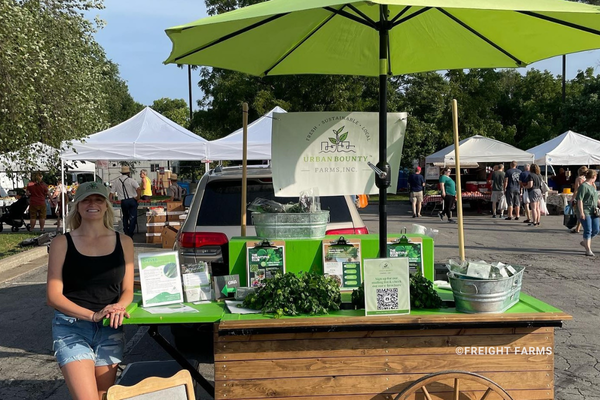
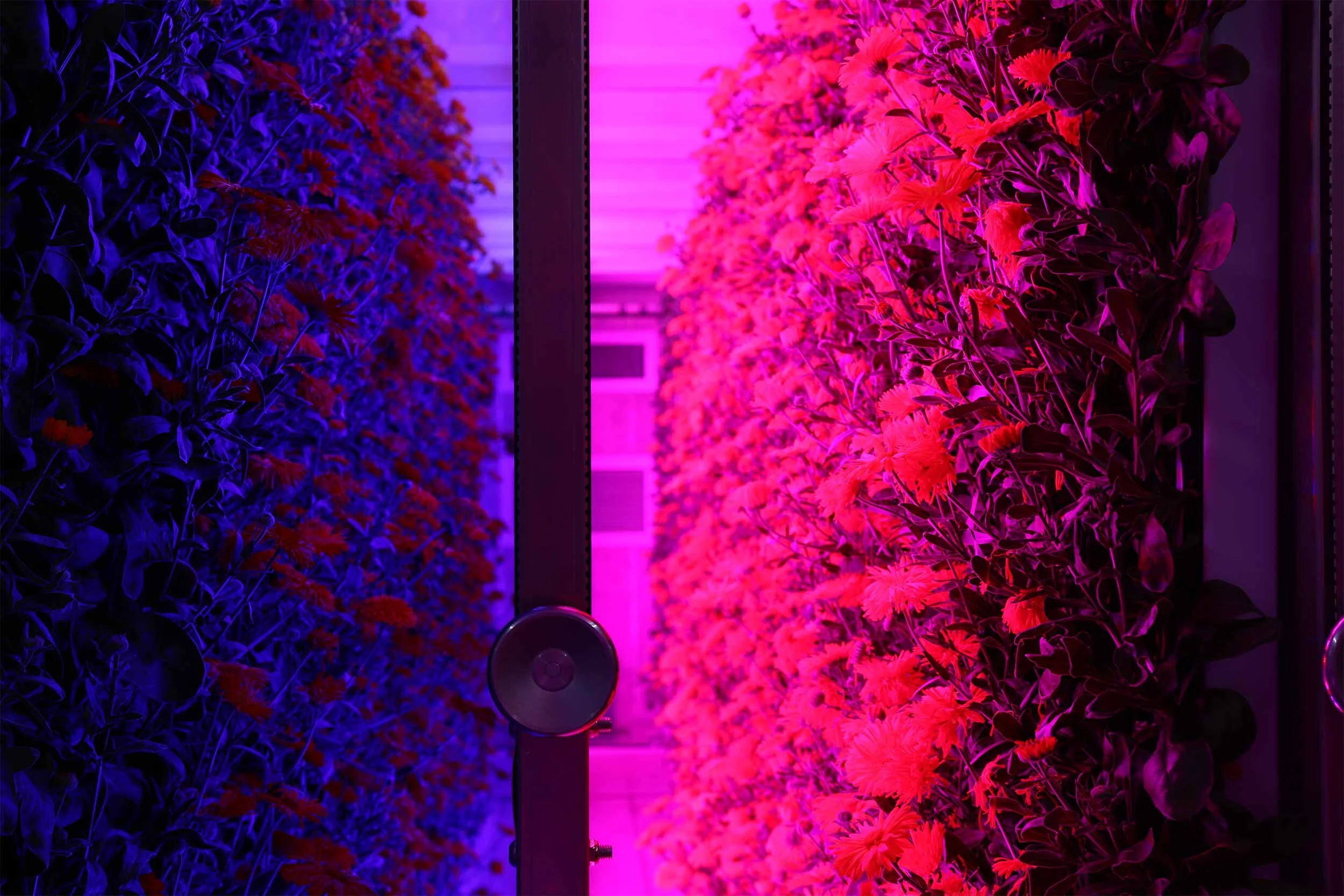








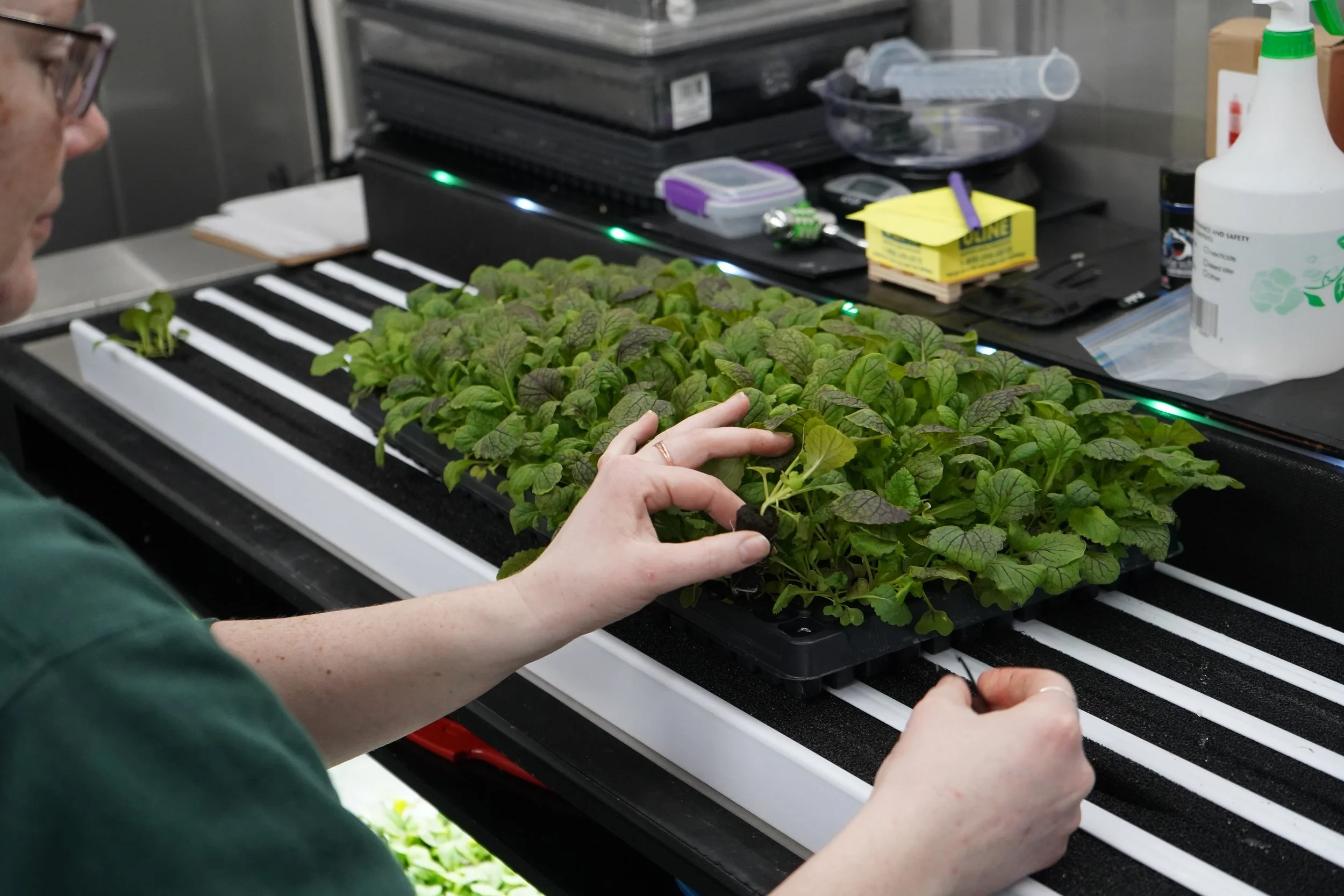


Future planning for your Freight Farms delivery? Learn what your site needs, what to expect on delivery day, and how to avoid common surprises.